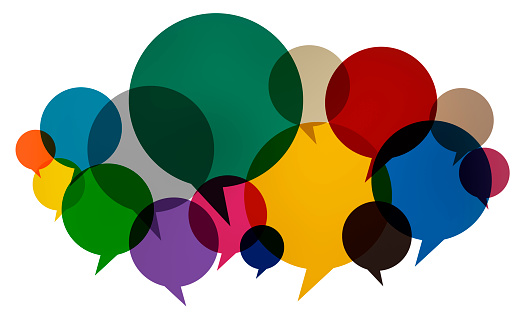 The draft of this blog post has nested in my Google drive for a long time. In my varied professional roles as teacher educator, administrator, literacy coach, I write a lot. Emails to students and faculty, grant applications and reports, articles reporting research findings, even a book or two! So why am I questioning my ability to write a blog post? The draft of this post has been gathering “virtual” dust on my laptop as I find myself anxious about writing it, and uncertain about whether or not I know what I’m doing. Why is it so important to get something right? And who gets to determine what “right” is?
The draft of this blog post has nested in my Google drive for a long time. In my varied professional roles as teacher educator, administrator, literacy coach, I write a lot. Emails to students and faculty, grant applications and reports, articles reporting research findings, even a book or two! So why am I questioning my ability to write a blog post? The draft of this post has been gathering “virtual” dust on my laptop as I find myself anxious about writing it, and uncertain about whether or not I know what I’m doing. Why is it so important to get something right? And who gets to determine what “right” is?
Our need to “get it right” as teachers and learners has been a recurring theme across my teaching, coaching and learning experiences this fall. These are some of the moments that I continue to ponder:
One evening, in my graduate class Children’s Literature, a Lincoln Center Education (LCE) Teaching artist was a guest in our class. LCE is an incredibly rich opportunity for our graduate students to have an aesthetic arts experience, learn about themselves as learners, and consider ways in which the arts can be integrated within their literacy block. Tobin, an experienced art educator and I had met and carefully planned a sequence of activities designed to support the teachers in creating an illustration for their original children’s book, a final project for the course, and to push their experience of creating and looking at illustrations further. Tobin first asked students to visualize a moment in their original story and communicate it with shapes. No words, no “illustrations”, just shapes. Usually teachers are quick to respond but I looked out at puzzled and baffled faces. “Just try,” Tobin urged, “there’s no wrong way.” Hesitant, they set to work. Yet just as soon, hands were raised across the room. “Is this what you wanted?” asked some. Just as many queried, “Did I do it right?”
 During my classroom visits, as a literacy specialist in READ East Harlem/Hunter College schools, I am continually struck by how often teachers ask, “Did I do it right?” It happens all the time— after I’ve observed a guided reading lesson, or a shared reading lesson, or when I sit in on reading conferences. I recognize that my position and title as “college professor” comes with the expectation of expertise and the ability to simply state right or wrong. Yet answering the question serves to slow down the learning rather than extend it. What can happen if we help shift the questions teachers ask for feedback to invite greater ownership of their learning? How about questions such as, “How effective was my instruction?”, or “In what ways were my students engaged?
During my classroom visits, as a literacy specialist in READ East Harlem/Hunter College schools, I am continually struck by how often teachers ask, “Did I do it right?” It happens all the time— after I’ve observed a guided reading lesson, or a shared reading lesson, or when I sit in on reading conferences. I recognize that my position and title as “college professor” comes with the expectation of expertise and the ability to simply state right or wrong. Yet answering the question serves to slow down the learning rather than extend it. What can happen if we help shift the questions teachers ask for feedback to invite greater ownership of their learning? How about questions such as, “How effective was my instruction?”, or “In what ways were my students engaged?
And we all hear from students, “Is this right?” “Is this what you wanted?” When I hear it in elementary classrooms, I grow concerned that already students are focused on meeting a teacher’s goal rather than developing their own goals and questions. And that learning is only about being “right” rather than developing their own curiosities, passions, and so much more.
 So, I will move this blog post out of the Google drive and share my questions and concerns in my first blog post. It’s really not about getting it right, right now. Rather, it’s about getting it moving in a productive way.
So, I will move this blog post out of the Google drive and share my questions and concerns in my first blog post. It’s really not about getting it right, right now. Rather, it’s about getting it moving in a productive way.
Loading...
